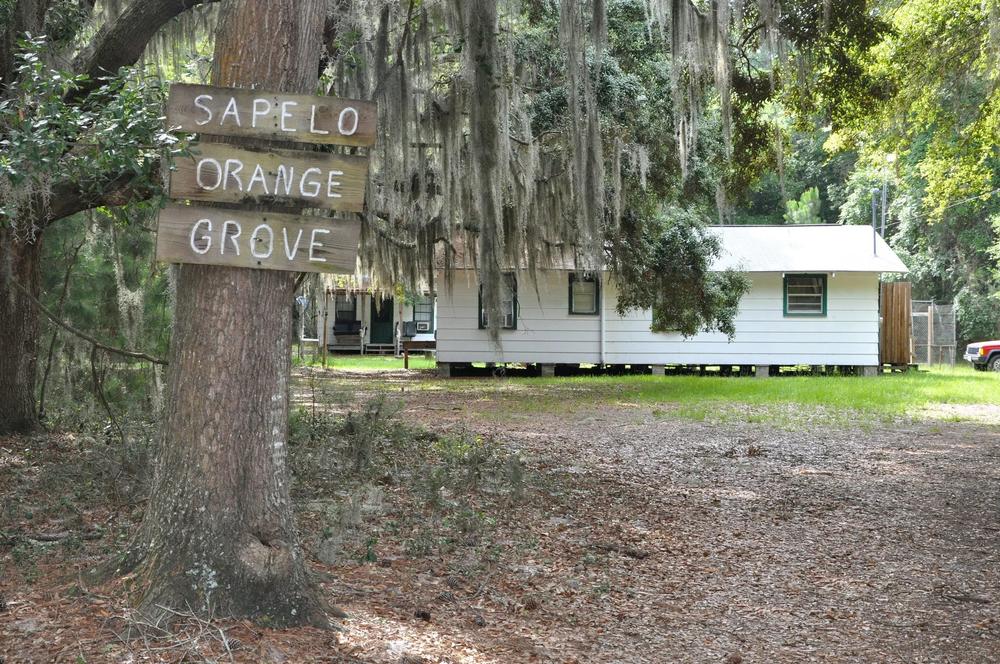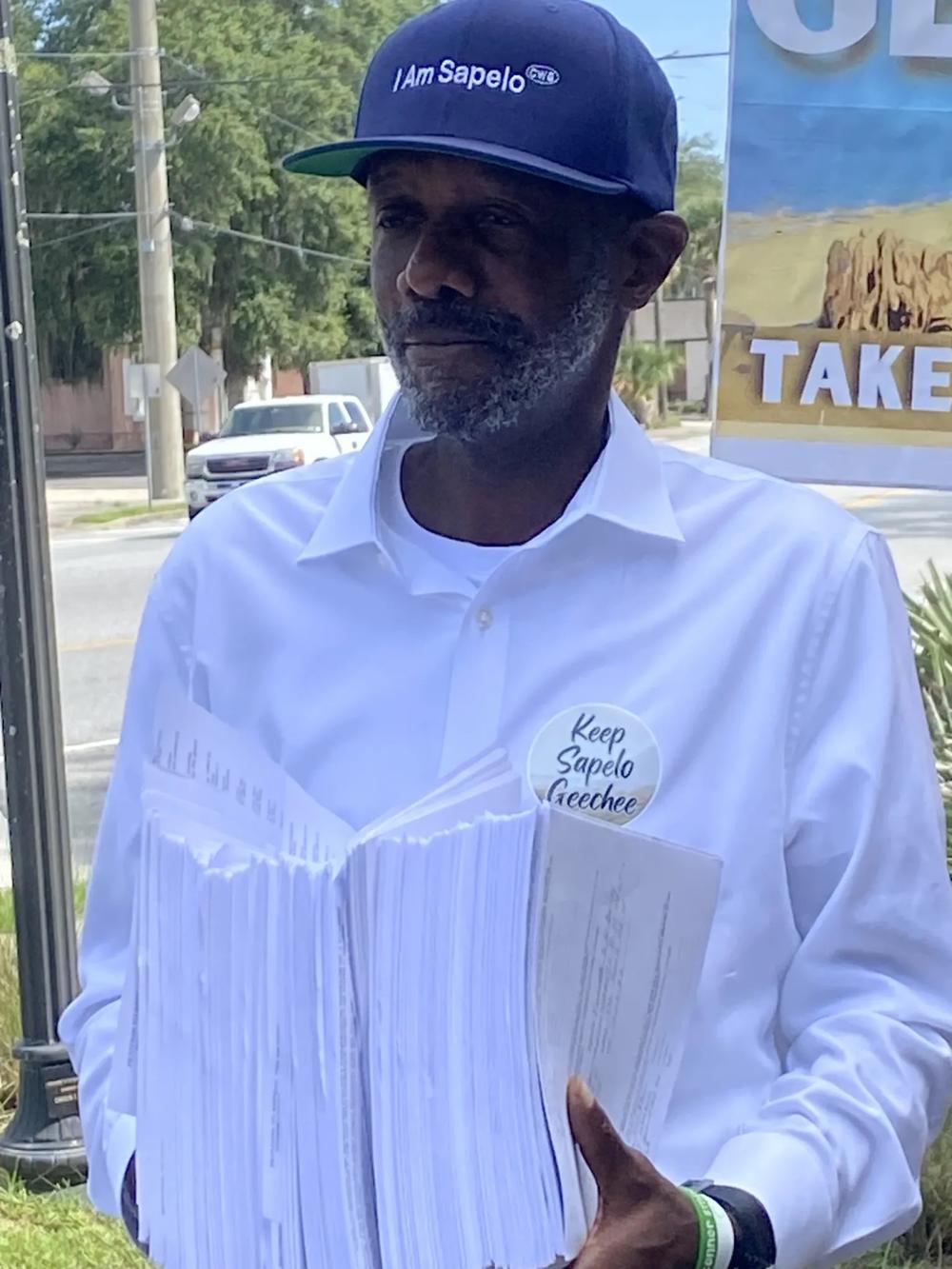
Section Branding
Header Content
McIntosh County argues Sapelo referendum effort not valid
Primary Content

McIntosh County is pushing back against its citizens’ efforts to force a county-wide vote about zoning on Sapelo Island.
Cumming-based attorney Ken Jarrard, who represents McIntosh County, sent a 4-page letter to McIntosh County Probate Judge Harold Webster on Monday. The letter lays out legal arguments against the petition that was signed by more than 2,300 county-registered active voters and filed last week to force a referendum on a zoning ordinance passed in September to allow larger houses in Hogg Hummock. The Sapelo Island neighborhood is inhabited by descendants of formerly enslaved West Africans and is the site of the last intact Saltwater Gullah-Geechee community on a Georgia barrier island. Residents fear the new zoning will gentrify Hogg Hummock and push them out.
Jarrard argues the petition and referendum procedure that allows citizens a chance to revoke multiple other county resolutions and ordinances doesn’t apply to zoning ordinances.

“Our rationale is fairly granular, but the big picture is exactly that point: It does not apply to zoning decisions,” Jarrard said in a phone interview.
The letter goes into the details: “Stated simply, when exercising power derived from the Home Rule paragraph, a county government does so knowing the General Assembly may preempt the county by a general or local law,” Jarrard wrote. “Not so with the zoning power. The General Assembly, as a matter of constitutional fiat, cannot exercise the power of zoning and cannot preempt a county’s substantive zoning enactments. The General Assembly may establish procedural rules regarding how the zoning power is exercised — but the General Assembly has no substantive zoning power.”
Josiah “Jazz” Watts, a Sapelo descendent who also works on environmental justice issues for One Hundred Miles called on the county to work with its citizens rather than against them.
"Again, they fight against the voices of the very people they were elected to represent and serve." - JOSIAH 'JAZZ' WATTS
“What I do know is that McIntosh County Board of Commissioners could have looked at those thousands of petition signatures and decided to reverse their 2023 decision to change the zoning,” Watts wrote in a text to The Current. “We would’ve finally seen our local government listening to its constituents and community members of the historic community of Hogg Hummock, home to one of America’s last ferry-based Gullah Geechee communities, and the only one left in the state of Georgia. Instead, they hired an attorney/law firm to fight it. Again, they fight against the voices of the very people they were elected to represent and serve. It was hundreds last year that showed up at the courthouse hearings. Now we have thousands that are showing up for us and standing in solidarity with us via 2,300 plus petitioners.”
The county requested that its letter be included in the record of the petition. By mid-afternoon Monday that had not happened, said Chrissy Bradley, a probate court clerk.
“Letters are not typically stamped, filed and made part of a filing,” she said.
Jarrard declined to comment on whether the county planned further action against the petition.
Savannah-based attorney Dana Braun is representing the petition filers. It’s not his first experience with the little-used voter empowerment tool. Braun also represented Camden County petition filers in their successful effort to reverse that county’s decision to buy land for Spaceport Camden. Camden fought its citizens at the Georgia Supreme Court, a case called Camden County v. Sweatt that Jarrard acknowledges in his letter, but contends is different in key aspects.
In an email, Braun said he had not yet reviewed Jarrard’s letter.
“However, what is clear is that in the Camden County v. Sweatt decision the Georgia Supreme Court specifically stated that Camden County ‘had no right to make a defense to the petition’ and that the ‘Home Rule Paragraph makes no provision authorizing a county, or any other party, to file a caveat, or any other form of opposition, to an elector’s petition in the probate court.’
“We do not believe that McIntosh County has the right to interject itself into this proceeding whether it be by a formal pleading or disguised as a letter to the Probate Judge, as this letter is clearly a ‘form of opposition’ not authorized by the Home Rule Paragraph.
As the petition process proceeds, so does another legal effort to reverse the zoning decision. In late May a group of nine Black residents of Hogg Hummock refiled a complaint in McIntosh County Superior Court. They asked the court to reverse the zoning for a number of reasons, including that it “discriminates against the historically and culturally important Gullah-Geechee community on Sapelo Island on the basis of race.”
This story comes to GPB through a reporting partnership with The Current.

